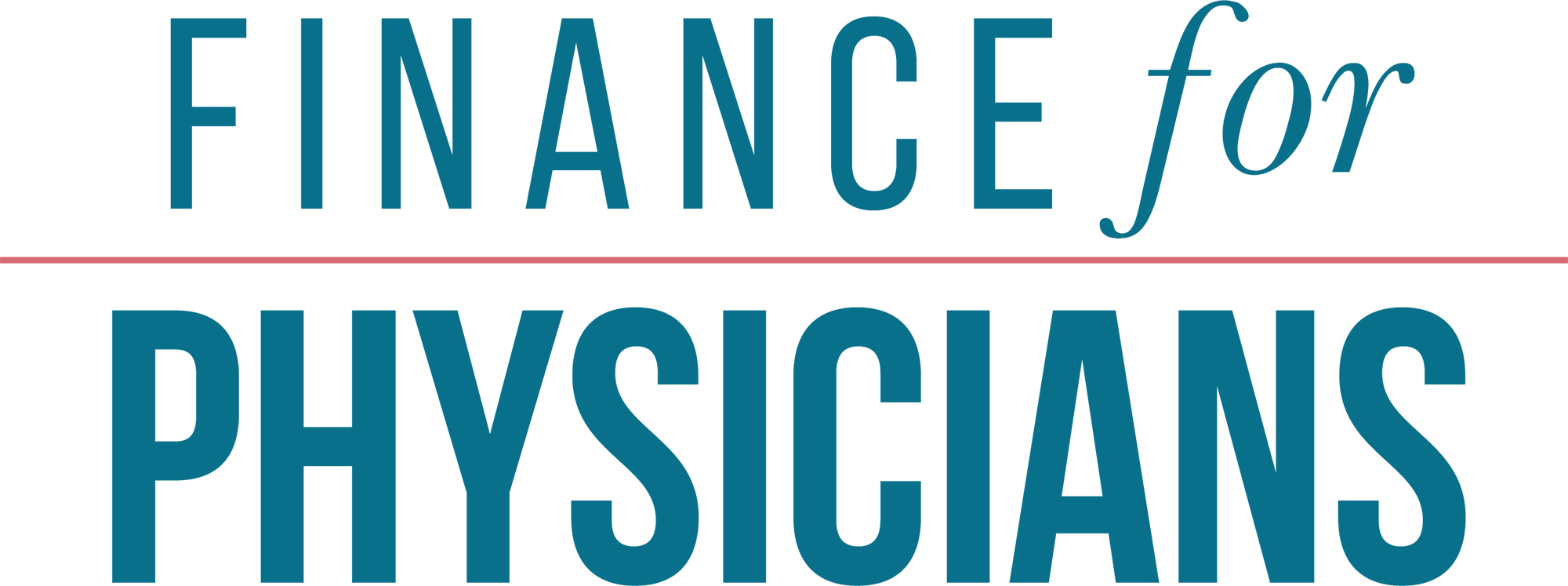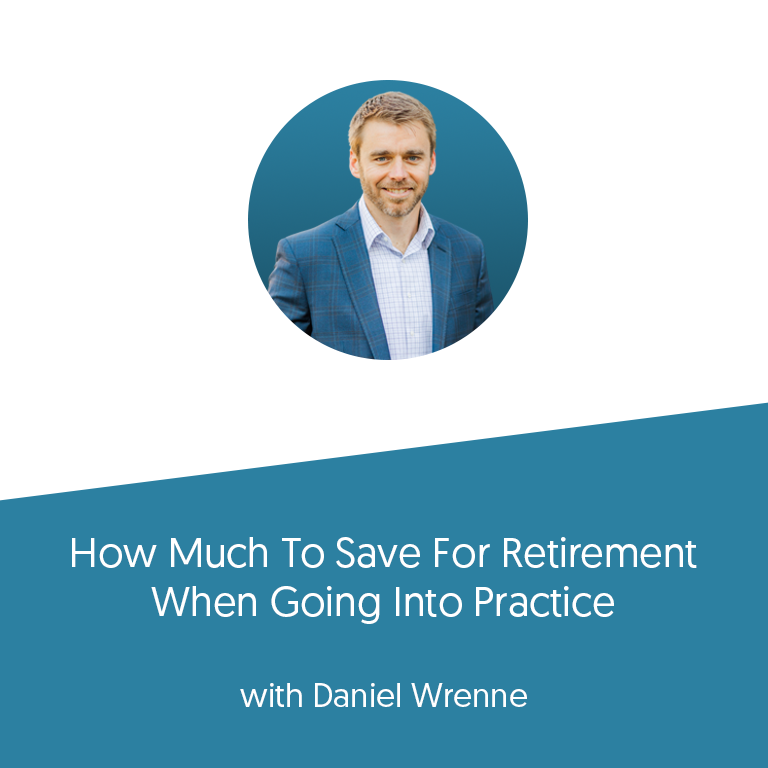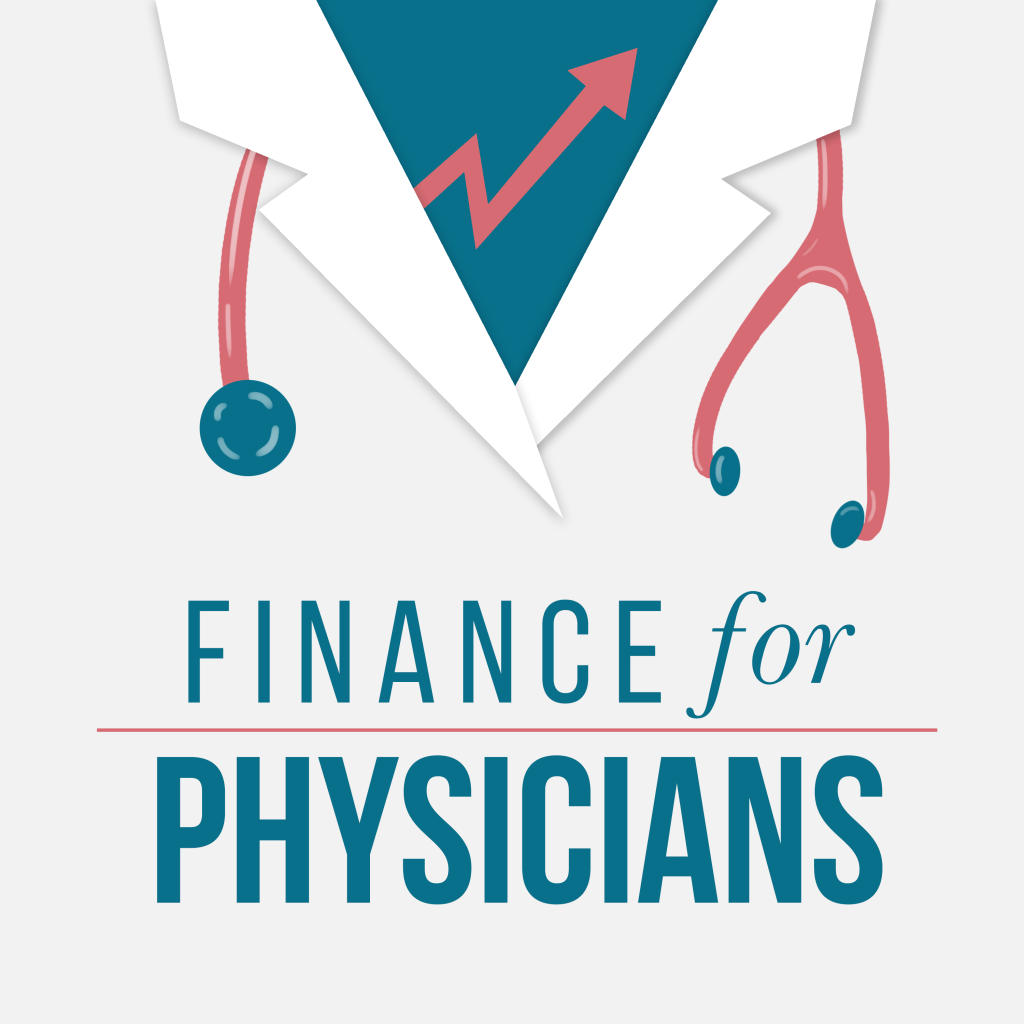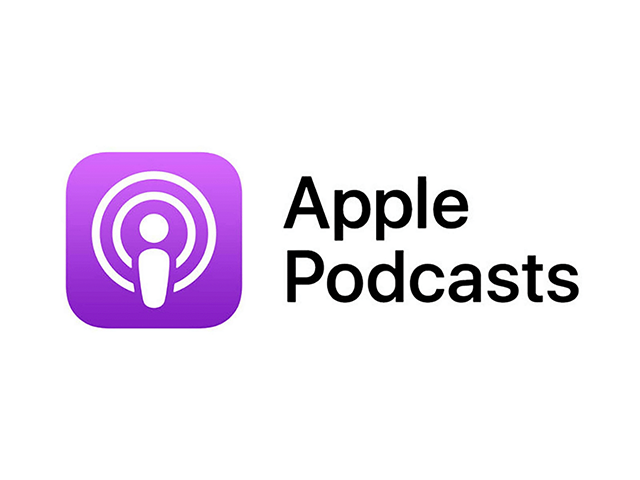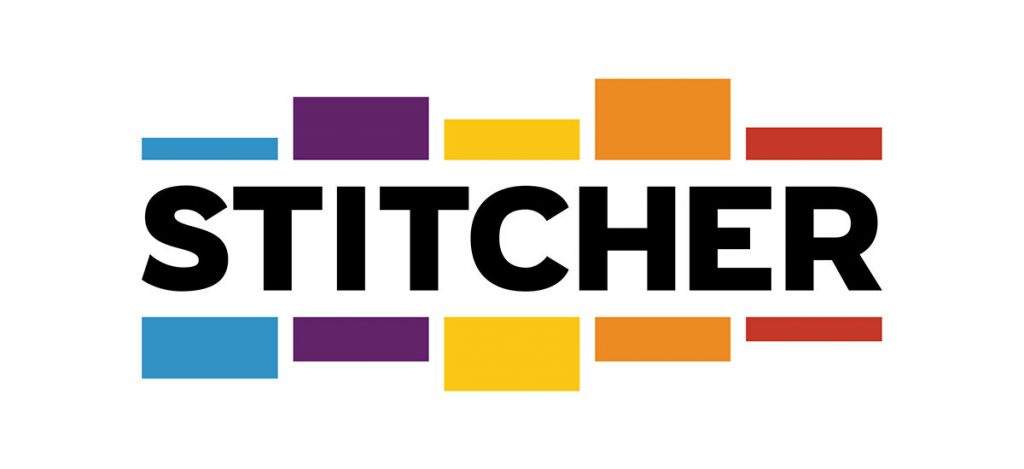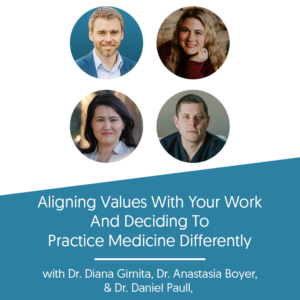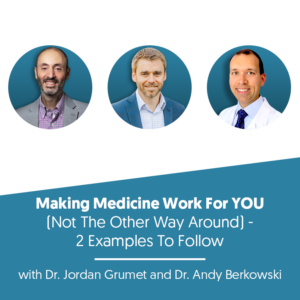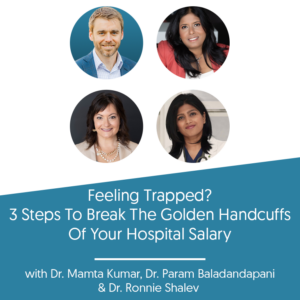Welcome to another insightful episode of “Finance for Physicians.” In this episode, we dive deep into the world of financial planning, particularly focusing on those crucial financial decisions when transitioning into a higher income bracket. Whether you’re a recent graduate starting a high-paying job or an experienced professional anticipating a significant income boost, this episode is packed with valuable advice to help you make informed choices.
P.S. We value your opinion! Share your thoughts and insights with us. Your feedback helps us improve and tailor our content to your needs. Click here to give us a piece of your mind.
Links:
To schedule a call with one of our awesome planners, book HERE.
Full Episode Transcript:
Daniel: What’s up, guys? Hope you’re having a great day. I have been asking for some questions from you guys to submit. We love covering topics, most importantly, covering topics that you guys have an interest in. And so I think a great way to do that. is if you guys can share some questions or topics you have a particular interest in.
And so today, I got a great one I wanted to share and then talk through. So that’s the agenda for today. We got a really good question. I’m going to talk through that. And then we’re going to talk about how you might address it. Okay, so, the question, I’ll just, change the name on it to kind of keep it anonymous.
but I’ll read the email so you can kind of get a context around what, the intent here is here, and then we’ll shape the show around, you know, dealing with this particular issue. Okay. So the email, hi, Daniel. [00:01:00] Thanks for your podcast. I find it useful and especially appreciate the value based perspective you guys give.
Appreciate that. good word there, by the way. it’ll be interesting as we start to talk about the question, which I’ll go over in a second. It does completely tie into your values. So we’ll get to that more. So back to the email, you guys were asking for topics. I’m currently in my last year of residency, starting to think about my financial future and trying to figure out what budget should look like.
when I get out, I’m in radiology. So my income is going to quintuple from what it is now. And that’s hard to imagine having that much money and especially how to use it responsibly. I’m especially trying to figure out how much to invest for retirement. I assume just doing my 4 percent match isn’t enough since I’m getting started so late.
We’ll be 33 when I get out. So I guess just talking about how much to save as well as where to put money after maximizing standard 401k would be really helpful. Thanks. So we’ll say that’s from, Dr. Billy. so. This is a [00:02:00] really great question. It comes up a lot. I mentioned that values We’re gonna tie into it And I think that’s probably a good starting point.
I think the you kind of have to think about like what’s the theme here? With this so really two things. I think number one when you transition into practice. It’s like one of the best Opportunities it can also be one of the It’s like a fork in the road, a giant fork in the road. And it’s a really critical time to think about this kind of thing.
But the things I would start with from a, you know, framing your thoughts on this, first of all, is is most important to you? So what are your values? because I mean, I don’t know how much you sit up thinking about those kinds of things. In my experience, when I’m like super busy, I have a hard time taking a minute to like reflect.
On what’s most important, what, you know, what ideally do I want life to look like in the future? And so I think I can imagine coming out of [00:03:00] training, it might be a little bit of a foreign concept to think about, like, what is most important to you. But it’s extremely important when you start making all these big financial decisions to have those top of mind.
And they don’t have to be perfect. They’re never going to be perfect. They’re kind of an evolving thing. But I think having your values or what’s most important to you. Or what are you striving for front and center. And then secondly, having a plan, you call it a financial plan or whatever, but a plan, that is really shaped around those values that you’ve identified.
So I think that’s critical. I’ll sprinkle that into what I talk about. but that’s just a general thing. Like. And I think everybody should be aware of their values. And I think everybody should have a plan. And I think most of you would probably agree with me, but it’s, if you look at the stats on it, it’s a really easy thing to procrastinate addressing.
Like a lot of people, not an insignificant amount of people. Literally go through their entire lives and, they’re educated and smart people without ever really thinking about values and without ever [00:04:00] having a plan, a financial plan, especially so that life gets busy and you get sidetracked on this.
So it takes some intentionality, but I think that’s the first most important thing I would address before we start to get into a little bit more practical things to think about is just this of all times in life. It’s important anytime, but of all times in life, this is the critical time to have. To be aware of your values or start to think about your values and then start to shape your financial plan.
around those values. Okay, so, I think the first thing, so, what I call this person, Dr. Billy. So I think the first thing, we’ll call Dr. Billy, was, or the emphasis he was making is on, retirement primarily. And I’m going to talk about that in a second, but I think where I would start with this is thinking about the engine, like the gasoline, I’m sorry, behind the engine, because your income, he mentioned his income is going to quintuple.
So, um, All of this stuff is really contingent upon earning that income. And so, you have to like, so think of that as like your career, I guess we [00:05:00] could, if we were to call it something, we’ll call that like your career or your, earning potential, you could call it that. So think of it like your earning potential within this profession you’ve spent a lot of time specializing in.
there’s an economic value to that and it’s substantial when you look at it for the remainder of your life, but there’s also lots of risks. To think about, because so if you don’t, we don’t want to go too far down the road of like deciding where it needs to go and like budgeting it until I think you’ve really thought about like, let’s make sure even in like unforeseen circumstances that, you know, that income is going to be.
coming in or somewhat predictable. So along those lines are within that realm of unpredictability. I would say choosing the right practice is huge. And maybe maybe maybe Dr Billy’s already done this. that’s really something, even if you’ve already selected the right practice, it’s something you’re going to be.
I would consistently be kind of thinking [00:06:00] about as you start a job. and the reason, I mean, that’s always important for all professions, but I think it’s especially important for physicians because the career, there’s a lot of frustrations. The healthcare system is, has its problems and physicians are feeling a lot of pressure as a result of that.
So there’s a lot of burnout and career changing. And surprisingly, you know, we’re seeing a lot more of that with people we work with and desire to get out of medicine or retire early and that kind of thing, or even just like this practice is terrible. I need to switch. So, I think making sure you’re in a.
that’s first of all, starts when you’re looking at jobs, but then once you accept the job, it continues into like actually experiencing it because it’s really difficult to know for sure. but there’s warning signs, like if, and this starts to get into values, if like your job is taking everything you got, like in training, it, a lot of times probably takes, it’s like takes all the gas in the tank.
You’re kind of like drained when you get done.[00:07:00] I think. Your job really, I mean, assuming you have values outside of work, need to have some gas left in the tank when you get done. So, some, practices have a culture of working a ton and, or even demanding that, and that’s a problem. And so you may be earning like 10X your income, like it doesn’t matter, like you could be earning 10 billion a year, but if you have no ability to enjoy it, it’s like, what’s the point of that?
Like, that’s no fun. And so unless, I mean, unless that is your life goal, I don’t find many people. I haven’t really come across people that are like that. And I don’t think that’s actually, the way people work. Most people have values outside of work. And so you want to be aware of those and think about like, is my in practice job, congruent to that?
Like, is it an, if not, how can I change that? Do I need to make a shift? Like, am I, maybe I’m making a lot of money. but like maybe I can shift to another practice that’s not quite as much pay, but like is much more in line with values and gives me space [00:08:00] and maybe even pays more per hour. that’s a thing to be thinking about.
The reason is because, so like, well, first of all, you want to be happy in your work, but when you start to talk about your finances, like you gotta be careful how far you go down the road of starting to So we’re talking about budgeting for the new income. You have to be really careful about how far you go down that road of like starting to direct your dollars until you’re confident in the position.
I would be super hesitant in the world of healthcare today to be, you know, planning, especially for like concrete stuff, particularly for things that are like long term obligations, until I’m really comfortable with the job. So that’s an important thing. thinking about the practice, making sure.
it’s going to be a fit and maybe you’re not so confident about that. So that is a reason to like build in a lot more margin than normal. So maybe you are looking at your job and like, it’s a new city, new practice, new people. I don’t know anybody I’m unsure about it. It’s going to pay well, but I’m not sure.
So [00:09:00] it could be that you’re like, let’s go ahead and, pretend or plan as if I’m going to make. 300 a year, even though I know I’m making 500 a year. Maybe you’re not like living like a resident. I’m sure you’ve heard that terminology, you’re, being modest and you’re building in some margin.
You know, just to kind of cover you wiggle room wise, that’s a very reasonable strategy. So that’s the first thing thinking about the practice as you make this transition, because it is really, it’s going to be the gasoline that’s going to drive all this financial stuff. The second thing I’ll throw out there kind of ties into the same thing around, your income or your ability to earn your income.
So think about, so going back to the economics of your ability to earn an income, that could be thrown off if the practice is not a fit, which we just talked about, but it could also be thrown out of whack if something like out of your control happens with your health or you unexpectedly pass away or you have a burnout situation where you got to take a break or something.
So these are kind of like the worst case scenarios that I think it’s [00:10:00] important to. to kind of cover your bases there. they’re not, nowadays, they’re, you know, there’s lots of good ways to cover these, like insurances for like the unexpected disability scenario, or the unexpected death scenario, you can get insurance when you’re, you know, young and relatively healthy for pretty inexpensive and your work’s gonna provide some, but just, Working through those numbers to make sure, that you’re covering that adequately is a big deal.
for the same reasons I just mentioned with making sure you’re a good fit in the practice. And then, you know, for the unforeseen, like, break from work. Like, it’s hard to get insurance for that, but that can be solved by having, like, adequate cash reserves, like an emergency fund type of thing. Those are just good, good baseline things to do before you start socking away all your money and, you know, buying houses and that kind of thing.
So thinking about disability insurance, life insurance, and maybe have, you know, having a rainy day fund that’s going to cover you in the event of unexpected and those. [00:11:00] So both of those revolve around unexpected future as it relates to earning an income. The next thing I’ll throw out, and I promise I’m going to circle back to retirement, but I really strongly believe all these things are much more important.
Um, well, maybe not more important, but I think they should be a higher priority. Then thinking about retirement, mainly because they interrelate so much and it’s very difficult to do retirement adequately without thinking about all this stuff. Third thing I’ll throw out, student loans. So maybe, hopefully Dr.
Billy doesn’t have student loans, that’d be great. but, you know, if I’m a betting man, which I’m not, but if I was, I’d be like betting money that, that he does, obviously as a physician. And so thinking about how, what the student loan plan is basically. What’s the job? Is it qualified for PSLF? Is there any forgiveness programs?
what’s that going to look like? How’s that fit into the equation of my finances? What is the payments? What are the payments going to be? It’s a little complicated to figure [00:12:00] out what payments are going to be for like, PSLF type things because it’s income based, but you can run the numbers. or we can run the numbers.
it’s an important thing to kind of carve out that. In your plan before we start to get to this other stuff, especially forgiveness programs and PSLF, because those are going to be payments. You got to make a, now, if you’re not going for PSLF and you still have student loans, then it’s a question of like, are there other forgiveness programs, or if not, like how quickly do you want to pay it off?
And that starts to get into like priorities a little bit and like what’s most important in your values. but like that is, I’m gonna make a assumption that most of you guys would like to pay it off pretty aggressively if you’re not gonna get forgiveness.
So maybe it’s like a 10 year period or maybe it’s a 5 year period, I don’t know. Whatever that is for you, or whatever the goal is there, go ahead and figure out what the payment needs, is gonna be to make that happen. And then that needs to be kind of like the first line item you’re budgeting for in this new earning situation.
[00:13:00] Next thing on the list I would think about is, is taxes. And this is really important. I think, first of all, I think this is a little more obvious. example, but it’s nonetheless important is that you have to pay taxes, you know, so taxes will come out. Well, if you’re, unless you’re doing like an independent contractor deal or self employed, assuming you’re an employee, taxes are going to come out.
And if you’re not, you’re going to have to eventually pay them. So you want to know, like, what is that actually going to be? What, like, what is my tax bill going to be? Ahead of time. you start same reason as the other things, like we want to do these things before we start, like. Allocating all the dollars.
We want to know what we’re working with and make sure it’s covered before we start like putting money into buckets, essentially. so I, you can figure that out. Like it’s not it’s a, it’s a logical thing you can calculate. and I’m talking about like, what do you need to pay or what will you expect to pay in taxes?
And so [00:14:00] the most common things you’re going to pay are like federal tax. That’s. Pretty straightforward. You can just, you know, and even there’s calculators online, that you can run those numbers on. State tax. If you’re, hopefully, maybe you’re, you know, fortunate in living in a state that doesn’t have state income tax, like Florida or Tennessee or something.
But, most states do have state income tax, so you gotta account for that next. And a lot of places have local tax, local income tax. Like where I live in Kentucky, we have state income tax and local income tax. And it’s actually 2. 75%, which is not, I mean, that’s not huge, but it’s not small. It’s not tiny either.
When you start to see the dollars. So mark, you’re marking or, or carving out that money and then, and then you have a social security tax, or, you know, it’s not technically a tax, but social security and Medicare payments, you can, you can do the math on those and go ahead and figure out what’s going to come out for that.
And so sometimes there’s some other [00:15:00] local or regional based taxes.
It’s important to go ahead and like look at what all those things are going to be and do a little bit, do kind of a projection about what is going to be your tax burden. And then you can start to see like, before anything happens, before I start doing things with my money, what’s my take home pay?
Because that’s actually what you’re working with. A lot of people start into practice and they think I’m going to make 500, 000. But like, what does that even mean? after tax. So like, what are you actually working with? Is it, I mean, if it’s some people, you know, think incorrectly that they are going to pay 50 percent tax on that income level, that’s too high.
but if you’re going off that assumption, that’s 250, 000 leftover, you know, after all the taxes come out, it’s typically going to be a little lower than that, but you got to figure out the numbers so that you can kind of. Know what you’re working with before we start to, you know, divvy it up.
And on top of that, understanding what, so tax shelters often exist within your [00:16:00] work retirement plans. So you want to understand like what’s available with your work. Like I w I want to know all the options. Like, do I have a 401k? Do I have a 403b? Do I have a 457? Those are the most common like, work retirement plans that are.
That offer tax shelters, but sometimes there’s other plans like cash balance plans or pension plans that are going to be really good tax shelters that exist or HSAs. HSAs are a great one that can exist within your work setup. Most physicians in practice will want to max all those out. So I think, you know, if I’m talking generally, I would say, I would go ahead and like assume all those get maxed out.
Now, the 457 plan, you have to be a little careful with because it depends on what specifically type of 457B plan you have, But assuming, you know, it’s a better one, which is the governmental type, you, you definitely lean towards max and all those plans out just because they are [00:17:00] very good tax shelters.
and you only get so much of them, but making sure you understand what those are, first of all, and then starting to kind of. Divvy that up as well. And that also you know, affects that first calculation about how much tax is going to be paid ultimately. So we want to get that lower, like the tax bill if possible.
So understanding taxes starts to give you an idea of what you have to work with. So now we’re down to the line item of like, what’s take home, like, what do we have to work with? So this gets into, so we’re getting closer to,
video1140621719: so
Daniel: now we’re going to talk about retirement, and education, I think all throughout those two, there can be other things.
So this is when I would start to think about like, what are your goals and your values too. so. Education and retirement are, I think, important things to think about when you make this transition, it’s the best time a lot of times to get those go in and saving for them. the figuring the amount is really difficult because it varies a ton based on what your, ultimate goals are.
So for, we’ll start with [00:18:00] retirement. let’s say, so Dr. Billy’s 33. Let’s say Dr. Billy’s like. I know there’s some problems in health care, like I’d like to have some flexibility to be financially independent as soon as possible, like 50, that’s going to be a really high savings rate required, like the rule of thumb I’m going to all throughout is like, let’s just say 20 percent of income, of, gross income, like before tax income, maybe you’re saving for retirement.
That’s just a, you know, general rule of thumb, but like, you’re going to be way above that if you’re shooting for this early financial independence, and it’s unreasonable to kind of go for that until you’ve, you know, run these numbers, you gotta, you gotta, you gotta do the numbers ultimately, on the other hand, if you’re like, I’m going to work to 65, like I enjoy my work and I want to continue doing it and I want to plan for that so that I have resources available to other stuff.
Yes. Uh, sooner than that, that’s going to be a much lower number. It might, I mean, maybe it’s 20%, it probably might even be a little lower than 20 percent depends on, you know, the details of your situation. but I think like a blanket general rule of thumb maybe would think about like 20 [00:19:00] percent of income before, tax income that is, and, start from there, but really a better approach is to say like, what is the goal and then, then we can start to fine tune your.
the other thing too is like, what is the lifestyle? So for retirement planning purposes, and that’s kind of like a difficult thing to predict especially when you’re transitioning into practice, but like, I’ll just kind of talk around it a little, like. I like to think of it like a pendulum swinging one way or the other in terms of your spending versus saving.
So if you’re, let’s just go with the, let’s say your take home pay is 250, 000 a year after taxes. So one swing of the pendulum might be that like you have, grown your lifestyle to the level of 250, 000 of lifestyle. So in other words, you got zero to save. So obviously that’s not great for retirement planning saving purposes.
but it, it gets even worse because if you’re used to [00:20:00] 250, 000 a year, you need to be saving as if you need, you’re going to need 250, 000 a year when you retire, which is a much bigger number than if it was a lot lower, like. Like say a hundred thousand. So that’s one swing of the pendulum. The other swing would be like, oh, maybe your lifestyle you end up at is a hundred thousand.
And so that’s kind of swinging the other direction. So you’re used to a hundred thousand lifestyle and therefore are saving a hundred and fifty thousand a year. That’s a completely different scenario and it like really has this swinging effect the other direction. It can go swinging really fast. but when you’re saving a hundred and fifty and you’re spending a hundred, It’s like you’re saving a ton more, but you really actually are saving for a lot lower future lifestyle because retiring on a hundred thousand dollar lifestyle is not.
near as, challenging, or it doesn’t require near as much resources as the 250, 000 lifestyle. So it’s kind of like a, you know, like a teeter totter, or I like the [00:21:00] swinging, the pendulum, analogy. It’s like, you got to look at both the spending and the saving, and they have like this interrelated effect, when you’re thinking about.
Saving for retirement, a safe bet is to keep your lifestyle under control. Like that’s going to be a safe bet for this stuff. and then if you just really wanted a number and you didn’t want to do all this analysis and thinking through this planning, like maybe 20 percent is a decent starting point, especially if you’re okay with like normal retirement ages.
So that’s retirement education. you know, maybe you’re, it’s important to save for, undergraduate for your kids, or maybe you’re going to be. It’s important for you to fund private school K through 12 or whatnot. education is a common, it’s probably the second most common, goal that we hear people bringing up.
So you wanna, it’s a good time to be carving out those dollars, when you’re transitioning to practice. It’s the same sort of thing. It’s not quite as complicated as an analysis, but, but there’s also, I don’t really have a great rule of thumb because it depends so much on like what the goal [00:22:00] is. So it’s like, where, you know, what are the costs going to be?
Like, we like to look at it from the view of like, well, for K through 12, it’s like, what’s the school you’re looking at? Like, what’s the, what’s the cost. And then we can figure out what that needs. You know, what the needs need to be. Maybe you even fund that out of your just normal monthly budget. Or undergrad, maybe you have this school in mind, it would be kind of like potential for a school you would cover.
and you know, we can use those costs today and, it’s straightforward to project those in the future, and then back into what is necessary to be saved. you can find online calculators online that make it straightforward. calculation is pretty complicated, but you can find online calculators that are relatively straightforward that will help you to determine how much should be saved in order to fund a future education goal.
or if you’re working with us, like we’ll calculate that kind of thing and give you numbers, but I think the bigger thing is like, what’s the goal? How important is it? How does it stack up priority wise with all these other things? And ideally you [00:23:00] err on the side of getting that going before that, or, you know, as that income jumps up, because that’s the best opportunity most people are going to have in their entire lives.
So that’s, carving out those savings and hopefully that addresses, the question about retirement savings. I know it’s not very specific, but that’s just the way, the world of personal finance. When you start to talk about personal, like personalizing your finances works is it’s going to be very personal to your situation.
The, I’ll throw out some other things to think about for this transition that I think are really important. maybe there’s some other goals you have, and along the lines of saving for retirement or education, it’s a great time to go ahead and start saving for, you know, whatever other goals you might have.
Another really good thing, and this really starts to get into values, is maybe it’s really important to you to give. Charitable giving is a, you know, common thing that comes up. I’m a big fan of it. I know that research Really backs it up as a solid use of money from the standpoint of [00:24:00] improving like your joy or happiness But say for you, that’s something you’re like, would like to someday give more or give period when your income goes up It’s the best opportunity to start doing that and I think a lot of times when I have this discussion with physicians that are nearing the end of training for the same reason it’s difficult to think about your values in training.
I think it’s difficult to think of things like, you know, charitable giving. It’s like if you’ve been working a ton and you’ve been like head down, grinding and out a lot of times you’re like, I don’t know, I don’t have, I’m not associated with much outside of work. And so. That’s commonly a challenge.
People will say, you know, giving is important, but I have no idea you know, where that might go, but you don’t have to figure out the, where what I would say to that is you don’t have to figure out where it’s going to go. Before you start giving. In fact, I would encourage going ahead and budgeting that or getting used to budgeting that when you’re making that transition and then just put [00:25:00] it in like a savings account that you call a future giving account.
And then you can figure it out later because it’s really difficult to, bump that number up later. It’s much easier to get used to it when the income jumps up. So making those carve outs is really key. And there’s also some tax benefits that can come into play. I’m not going to get into that today, but there’s some really good tax benefits that can come into play, that tie into giving.
So the next thing I’m going to go through. So I got two more. So the next thing I’m going to go through is cashflow. So we’ve, we talked about, starting to look at your income and direct it, you know, based on Dr. Billy’s question of like how much to save for retirement. What I’m saying is like, we got to figure out, first of all, like what happens if something unexpected happens and we got to think about, okay, well.
What about, you know, taxes and how much do I actually have to work with? you know, I gotta figure out what I’m actually working with before I can start to direct it. you know, then you can start to say, okay, let’s cover my long term first. So let’s think about the future before we start thinking about [00:26:00] today.
and, and then maybe you think about giving to others, if that’s important to you before you start thinking about yourself. But once you’ve covered your bases on all that then we get back to like, okay Well now I should have a pretty sizable amount Leftover, for cashflow coming in, hopefully. And so, you know, this number is gonna vary a ton based on your income and what all these other things we just talked about, how they play out.
But, I think, maybe a good starting point is like, what is your lifestyle now? I’ll go back to the example, let’s say we’re using 250 take home pay and let’s just say, you know, you’re going to carve out 100 of it to do all the other stuff we just talked about. So that leaves 150, 000.
So maybe your, lifestyle and training was 50. And so, first of all, like, it’s really difficult to lower your lifestyle, which is important to remember when you’re thinking about this kind of thing. But, so I would be cautious raising your lifestyle because it’s so difficult to lower it. But, I’m gonna go ahead and assume, like, you’re at least gonna stay at that residency [00:27:00] lifestyle.
So we’ll carve out 50, 000 for that, you know, lifestyle you’re already used to. So that’s like status quo, I guess. And so that still leaves a hundred thousand, right? So you got two 50, you save a hundred of it. And, you know, taxes are covered, all the stuff’s covered, you’re given money, you’re saving for retirement, education, so that takes, so you’re down to 150, and then 50 of it is residence, or your lifestyle you’re used to in residency, that leaves 100, 000.
So, that’s a pretty big number to be like, left over. so, this really starts to get into your values, I think, where it’s important to understand that, or think about that, and be intentional with it. I think the average person is like, well, we’ll just see how it shakes out. So, mean, I hear people say that all the time, but like, Now that you’re not quite, when you’re not in the heat of the motion of it, like thinking about it from a third party’s perspective, I’m sure most of you are like, well, that probably doesn’t work out very well for you.
And it doesn’t. I mean, [00:28:00] like when you just let things play out, it’s going to like capitalize money seems to like capitalize on whatever existing. Weaknesses you already have, I guess that’s a good way of putting it. It’s like, if you’re already a lean towards spender, you’re going to just creep that lifestyle right on up.
Like you’ll be at 150, 000 a lifestyle in no time. And that’s, I mean, you can look at your past and it’ll tell you a lot, but money has a, is it has a way of like just amplifying whatever your existing. Traits are, or habits are, and so if you’re going that route of like, we’ll just see how it figures out, or just see how it plays out, that’s what’s going to happen.
I mean, almost certainly, that’s what’s going to happen. On the other hand, if you’re like a hardcore saver, like, or even like, we’ll say cheap, cheap to the point of like, nobody wants to hang out with you, like, you’re not fun. I’ve been there in my life before and I’m like a recovered cheapo, but, if you’re really hardcore frugal, I like to call it frugal.[00:29:00]
If you’re really lean towards, not spending money and that situation happens, you’re probably going to save every dime of it. Like, you’re going to lock in on 50. Of lifestyle, and you’re gonna save not only, the money we already talked about, but like, you’re gonna save an extra hundred because let’s just try to do as much as possible.
And, so… I don’t think either one of those are good because there’s not much intentionality behind it. You’re just kind of going with who you are already and you’re not putting much thought around it. So what I would propose is like, think about who you want to become. Like, how do you want to improve?
What’s most important to you? if you’re married, like you want to pull in your spouse, like do, what do we want to accomplish? What’s most important to us? What do we want to, teach our kids about money? Like, What do we want to, ideally do with this? Like, so that’s where I would start to, direct that like, ideally it’s directed in alignment with who, you know, what you want to see your life turn out like, so ideally you’re thinking about, what’s most important or those values as you start to budget [00:30:00] or direct that, As opposed to just, like, letting things shake out how they shake out.
So that’s, that’s important, I think, to think about, as well. The last thing, if you’re paying attention, or maybe you’re in this situation yourself, you’re probably like, what about the house decision? Like, that’s kind of a big deal. And there’s a reason so this the last point I’ll make, is around the house decision.
And there’s a reason I put that last on the list. I think it’s an important thing, but I would prioritize it last above all the stuff I just talked about. So, the house decision is, I know it’s important, I just said it was important. And especially if you’re moving, you gotta figure out the house thing.
But the reason I’m prioritizing it after going through all that I went through is because I would say this is probably the most common mistake I see is people get the cart ahead of the horse or they get their priorities out of order or they don’t even think about their priorities and what’s most important and you get into transitioning into practice and you’re like, it’s just kind of emotional rollercoaster and it’s like, okay, I’m making Quinn [00:31:00] Tupple, Dr.
Billy’s making Quinn Tupple what he was making before. he’s already mentioned, how much money that’s going to be. It’s. He said it’s hard to imagine having that much money and it is it’s like impossible even because you’ve never experienced it I’m glad dr. Billy’s thinking about how to use it responsible responsibly Some people aren’t even thinking about that but it can easily like you can easily justify being responsible in You know Maybe you just heard me say, rule of thumb, 20 percent retirement, great, get insurance, great, get an emergency fund, no problem, maybe give a little, great, good to go, and then you’re getting down to the, the amount you have to work with, and you’re like, man, I still got a ton left over, and then you, so you start talking to people, and then the practice you’re going to work in, or maybe they even hook you up with a realtor, and they’re like, showing you a million dollar houses or whatever.
And, and then you talk to the bank and they’re like, well, we can approve you for a 2 million loan. and they just, it’s all, it’s like, it’s kind of like when you’re ring shopping, if you’ve ever ring shop, they like, it’s just your, expectations or your perspective kind of gets really skewed [00:32:00] one way when you start to get into the emotion of it.
And there’s a tendency for people to kind of pull you the direction of spending more. And so a lot of people get into this emotional. cycle of the house thing. And they end up spending basically all that they have left over after doing those things I talked about on the home. But the problem with that is we haven’t like really considered what’s most important to you.
a lot of times people aren’t considering like what’s truly most important to them. outside of maybe, you know, in this example, retirement and whatnot. So the home thing, I regularly see where the home is taking basically every extra dollar within the budget. And that’s. On top of that, the home is very, it’s an obligation that’s difficult to get rid of, and it kind of locks you down in an area, so it ties into the job, too, if you end up in a job that’s, that’s terrible, you, you got a home, too, it’s like, it really locks you down, so the home thing, I would prioritize it last, and I think it’s most important to think about your own.
To kind of back into it, kind [00:33:00] of the way I did just now, it’s like, let’s think about these few, you know, taxes, unexpected, let’s think about like longterm future first, let’s think about maintaining my lifestyle, and then let’s look at what’s left over, making sure I’m doing what’s like top of my priority list of what’s most important before I think about the house thing.
And then you back into the house thing. So, you know, Some examples of where this is challenging, a lot of people, when I ask them, like, what’s most important to them, they’ll say something like travel. Or travel with family, or family, those kinds of things. Or time with family. And unfortunately I see the home conflicting with that priority.
And it’s, I think a lot of times it’s just not thinking through it. And how it’s going to affect things. But if you spend more on a home, you most certainly will have less to travel. And if you spend more on a home, you will most certainly… Need to work more or earn more [00:34:00] like that’s simple math so I think putting that home in its proper place is super important in this transition and Not to say I’m not like saying I’m anti like million dollar houses I’m just saying I would think about it in from the view of what’s most important to you and what are your priorities and what’s your plan for the future and ideally that home fits into the equation.
So that’s where I would wrap up here is I think kind of going back to the values and the plan, a good plan or a good financial plan takes all this into consideration, takes into consideration, consideration, what’s most important to you. what’s the taxes? What’s the, what do you need to save for insurances?
What, you know, all these things we just talked about, what do you need to save for retirement and then helps you to back into, What is remaining and think through like what are the priorities and what’s the best decision to make that’s what it comes down to is decisions to make. So what’s the best decision to make that fits well with this plan that I’ve laid out.
So I [00:35:00] think the key is to think of this from a, it’s a very interrelated thing. that’s also why it’s difficult, but there’s a lot of. Moving parts and it’s very interrelated and that’s where that’s the classic situation where a plan is key is it can help you to kind of see how the, what the trade offs are.
Cause that’s what, I mean, that’s what it comes down to is the trade offs. What are the trade offs between, you know, doing that versus this? Like what are the trade offs to spending more now versus. Saving for your future, or what are the trade offs to spending on a house versus travel? That’s what it comes down to, and then how does that correlate to your values and what’s most important.
So that’s the thing I would stress, is in this transition period, be thinking about it from this view, and I think the good news is, so for Dr. Billy, like the best news of all of this, I think the thing that he said that was most important is he said, Especially how to use it responsibly. So he’s thinking from a responsibly responsibility standpoint.
And then the other thing is he said, I appreciate your value based perspective. So if you’re [00:36:00] thinking about this, you know, it sounds like he’s thinking about this, like from a. responsibility, you know, responsible adult standpoint, and he’s already on board with this idea of values based approach, you’re, you’re already in a really good spot if you’re thinking that away.
All you have to do is start to kind of put the pieces together of the puzzle and do the hard work of thinking through like, well, what is, what is it, what is your, what do your values actually look like and what are your goals look like? I think that’s a good spot to be in. and I guess the other important thing that’s kind of not specifically mentioned, but it is true is that this person is.
Has not made the transition yet. So that’s critical. Like if you’re thinking about this and you’re already in the throes of like the chaos of the transition, or even have been in practice for a while, not to say that’s, a bad time. There’s never a bad time. It’s always best to do this sooner than later, but it is great that he’s thinking [00:37:00] about this before the transition.
All right. Keep the questions coming. Um, that is it for today and we will look forward to chatting again next time.


